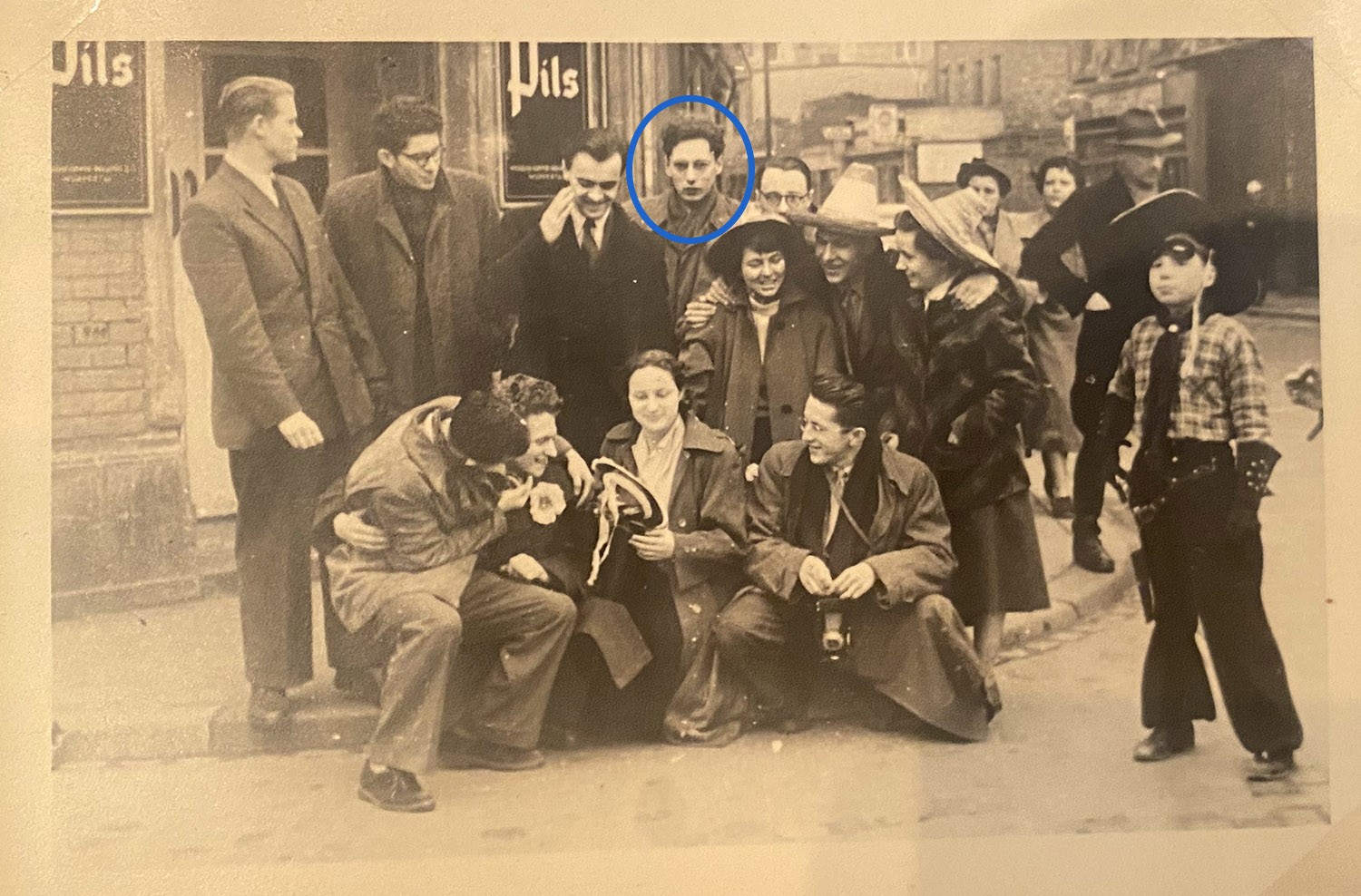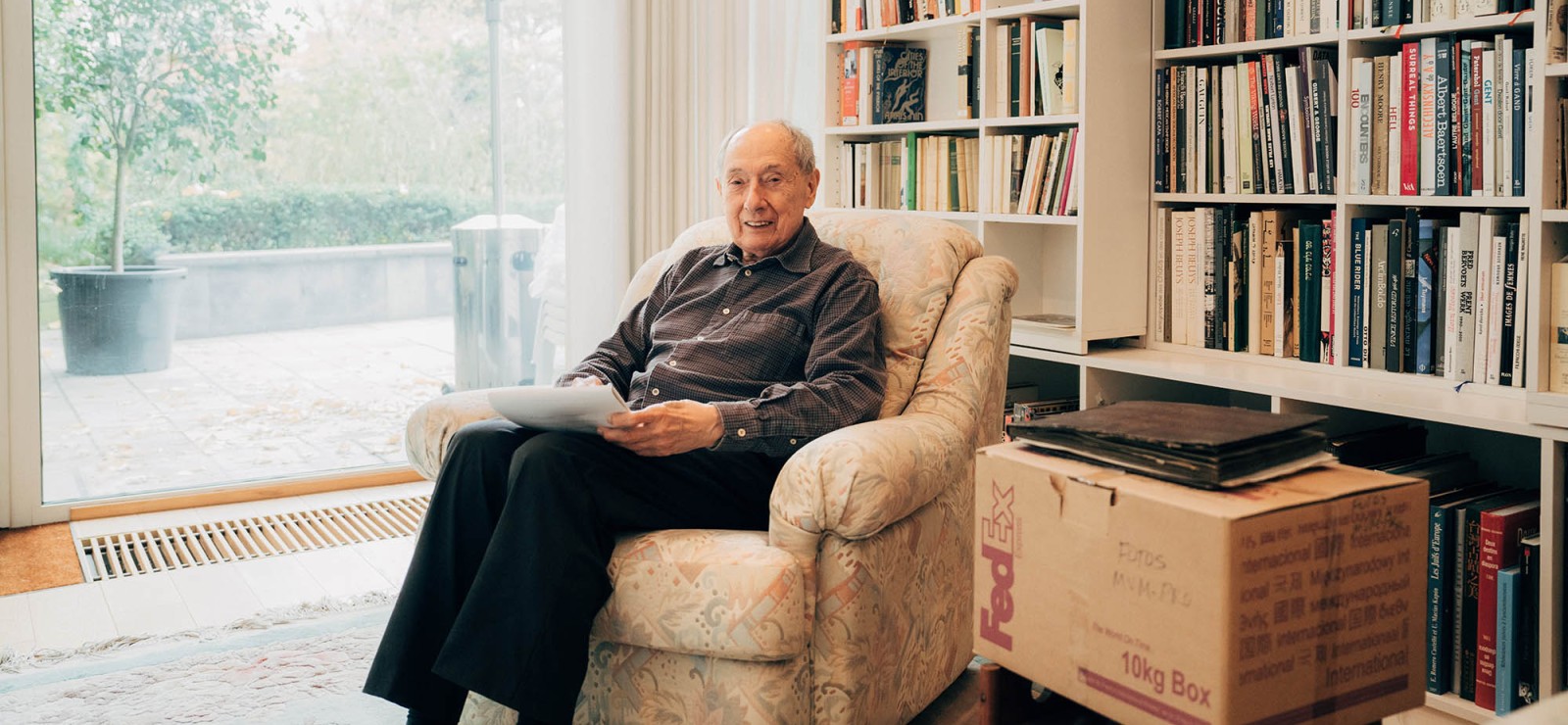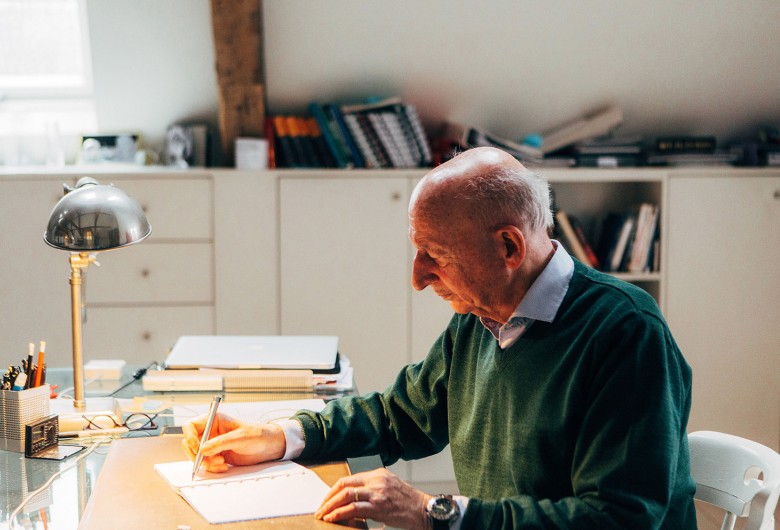Marc Van Montagu, one of the founders of biotechnology, writes a letter to his 17-year-old self. 17. What advice does he have for the young Marc? A lad from a working class district in Ghent who in October 1951 took his first steps in the scientific world.
Dear Marc,
Further studies or not: you didn’t need long to consider the question. Your father gave you the chance to take the step. Not an easy decision, looking back. We grew up among the workers from the textile factory down the road. At lunchtime you often see them sitting on the step under a cloud of dust, eating their sandwiches. If you decide not to pursue further education, it’s off to the factory.
Then there’s the registration fee. It’s not cheap to study. 5,000 Belgian francs… A loan is the only way, very much against our father’s wishes. But everything will work out.
Not so long ago, the local pharmacist asked: ‘Hey lad, why do you need those products?’. When you told him you were planning to use them in your home-made lab in the attic, he roared with laughter. Your interest in chemistry has grown considerably in recent years. That has something to do with your teacher at the Atheneum in Ghent. He gave you a taste of organic chemistry, at a time when almost no one was involved. At least not in our part of the world.
It was considered as something for applications, not for serious research. These days I see it quite differently. Making extracts of living creatures is something ridiculously described in German handbooks of your day as ‘schmierchemie’ (sloppy chemistry). Yet you are intrigued by such organic chemistry. So studying chemistry is actually your only option.
It’ll be your step towards biochemistry. That’s where your future lies. Even today it still fascinates me and I travel the world, to work with experts and extraordinarily interesting people. The knowledge you gain from now on will lead to the first successful genetic modification of plants. It will be the beginning of our fight for ecology. And a battle against misinterpretation and wrong information.

But first the biggest goal for the next four years: make sure you pass and graduate, with merit at least. It’s what you need to do a PhD. And that’s what you’ll want to do. You’ll meet so many people who make an impression on you, that you’ll be so excited to continue at the university. And if you hear the names ‘Jeff Schell’ and ‘Walter Fiers’, pay extra attention.
I advise you to join as many student clubs as you can right away. It’s too expensive in the cafés, however, the clubs’ barrel meetings are free. They only cost you sleep. Coming home between midnight and three in the morning, and being at breakfast at seven o’clock sharp, it will hurt. But don’t worry, in some lessons you’ll be able to catch up on some sleep.
Dear Marc, be amazed by the things you hear, see and read, and sniff up as much knowledge as you can. Don’t forget to enjoy yourself while you’re at it. Amazing times are ahead young man.
All the best,
Marc
Read also
Dirk Frimout wrote a letter to his 17-year-old self
Dirk Frimout wrote a letter to his 17-year-old self. What advice does he have for the young Dirk, as he takes his first step on a path towards unknown heights?
Read also
Ghent University Alumnus of the Year Marianne De Backer: “When someone tells you you’re too ambitious, you’re on the right track”
Marianne De Backer is a heavyweight in the world of biotechnology. Today she is CEO of Vir Biotechnology, a biotech company headquartered in Silicon Valley. She is a champion of women in leadership positions in this still male-dominated industry.
Connected to Ghent University for life: why our alumni are so important to us
The role of alumni within any university is not to be underestimated. “Our contact with ex-students is immensely important for so many reasons: research, education, reputation, talent management and more besides…. ,” maintains Emeritus Professor Kristiaan Versluys.
Serhat goes from Ghent University to Harvard: "I want to bring healthcare to people who are excluded from it"
Serhat Yildirim (26) just completed his final exams in medicine after which he will start at the prestigious Harvard University. He was admitted for the two-year master's degree in Global Health Delivery.
First Ghent University, then the world
Ghent university has a global network. Through international research projects, collaboration agreements with other universities, exchange programmes, ... And also through its many alumni, who fly off in all directions after their studies.





